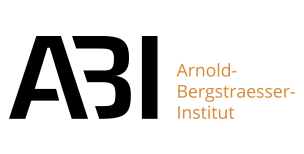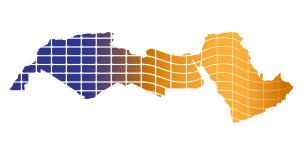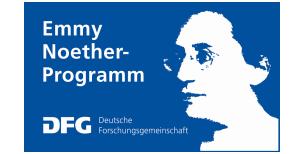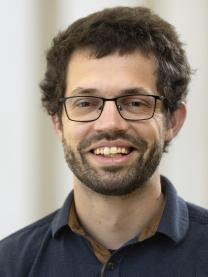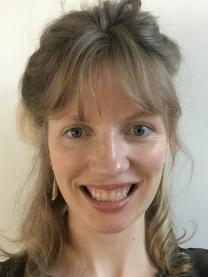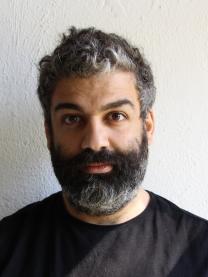Renewable Energies - Renewed Authoritarianisms?
About the project
According to Europe’s largest generator of renewable energy, “A lesser known positive aspect of the green energy shift is that more renewable energy leads to more peace and democracy!” While countries in the Middle East and North Africa (MENA) remain heavily dependent on fossil fuels, they are pursuing ambitious targets for a transition to renewables. However, transregionally connected elites use renewable energy projects to reconfigure authoritarian practices, reinforce socio-economic inequalities, and replicate neo-colonial hierarchies. In contrast to this, social movements demand climate justice and decolonisation. How do renewable energy projects in the region reconfigure authoritarian politics? What kind of politics is driving efforts at expanding renewables? And who benefits from these?
This DFG-funded Emmy Noether Junior Research Group (2022-2028) looks at the relationship between solar energy and authoritarian practices in and beyond predominantly hydrocarbon-poor countries of the MENA. It overcomes the methodological nationalism of previous studies by applying a transregional approach. While focusing on Morocco, Tunisia and Jordan, the group follows the effects of funding schemes, policies, and forms of resistance also beyond the nation-state. In short, the team explores the intersection of climate breakdown, efforts at expanding renewables, the global reconfiguration of authoritarian power and the emergence of new forms of resistance. Sub-projects include:
- The uneven politics of decarbonization in the MENA (Schuetze)
- Renewable energy labour regimes in the MENA (entire group)
- Renewable energy projects in Jordan and mobilisation from below (El-Khazen)
- The financialisation of renewables in Morocco (Mueller)
- The technopolitics of Tunisian-European renewable energy connectivity (Wagner)
The project and team are based at the Arnold-Bergstraesser-Institute (ABI) in Freiburg, Germany.
Team
Dr. Benjamin Schuetze
Emmy Noether Research Group leader
Ben obtained his PhD from SOAS, University of London in 2016, and has since worked as a postdoc at the University of Freiburg and as a fellow for the Young Academy for Sustainability Research at FRIAS. He is author of Promoting Democracy, Reinforcing Authoritarianism? US and European Policy in Jordan (CUP, 2019) and elected member of the BRISMES Committee on Academic Freedom.
Charlotte Mueller
PhD student
Charlotte completed her MSc in Migration, Mobility and Development at SOAS, University of London in 2022, fully funded by a DAAD scholarship. Since then, she has worked for a London-based NGO in political campaigning. As part of her PhD she has conducted extensive field work in Morocco.
Elia Wehaiba El Khazen
PhD student
Elia is an organizer and researcher whose work has been published with Jadaliyya, TNI, The New Inquiry and MERIP. He completed his MSc in Middle East Politics at SOAS, University of London in 2019. As part of his PhD he has conducted extensive field research in Jordan.
Philipp Wagner
PhD student
Supported with a scholarship of the Heinrich Böll Foundation, Philipp received his MA in Applied Political Science from the University of Freiburg and Sciences Po Aix-en-Provence in 2022. Subsequently, he worked in the field of climate protection and energy transition. During his field research in Tunisia, he was affiliated with the Merian Centre for Advanced Studies in the Maghreb (MECAM) at the Université de Tunis.
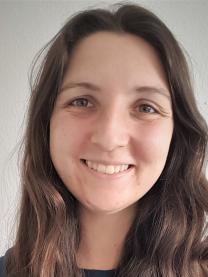
Tabea Knerner
Student assistant
Tabea is currently completing a Master's degree in Islamic Studies at the University of Freiburg. As part of her studies, she has already gained academic and professional experience in Jordan, Lebanon and Egypt.
Prof. Dr. Adam Hanieh
Visiting researcher in July 2024
Adam is Professor of Political Economy and Global Development at the University of Exeter and Distinguished Research Fellow at Tsinghua University in Beijing. He is author of several books, including Crude Capitalism: Oil, Corporate Power, and the Making of the World Market (Verso, 2024).
Dr. Rafeef Ziadah
Visiting researcher in July 2024
Rafeef is Senior Lecturer in Politics and Public Policy at King’s College London. She is author of various articles on humanitarian logistics and the logistics space in the Gulf, and co-author of Revolutionary Feminisms (Verso, 2020).

